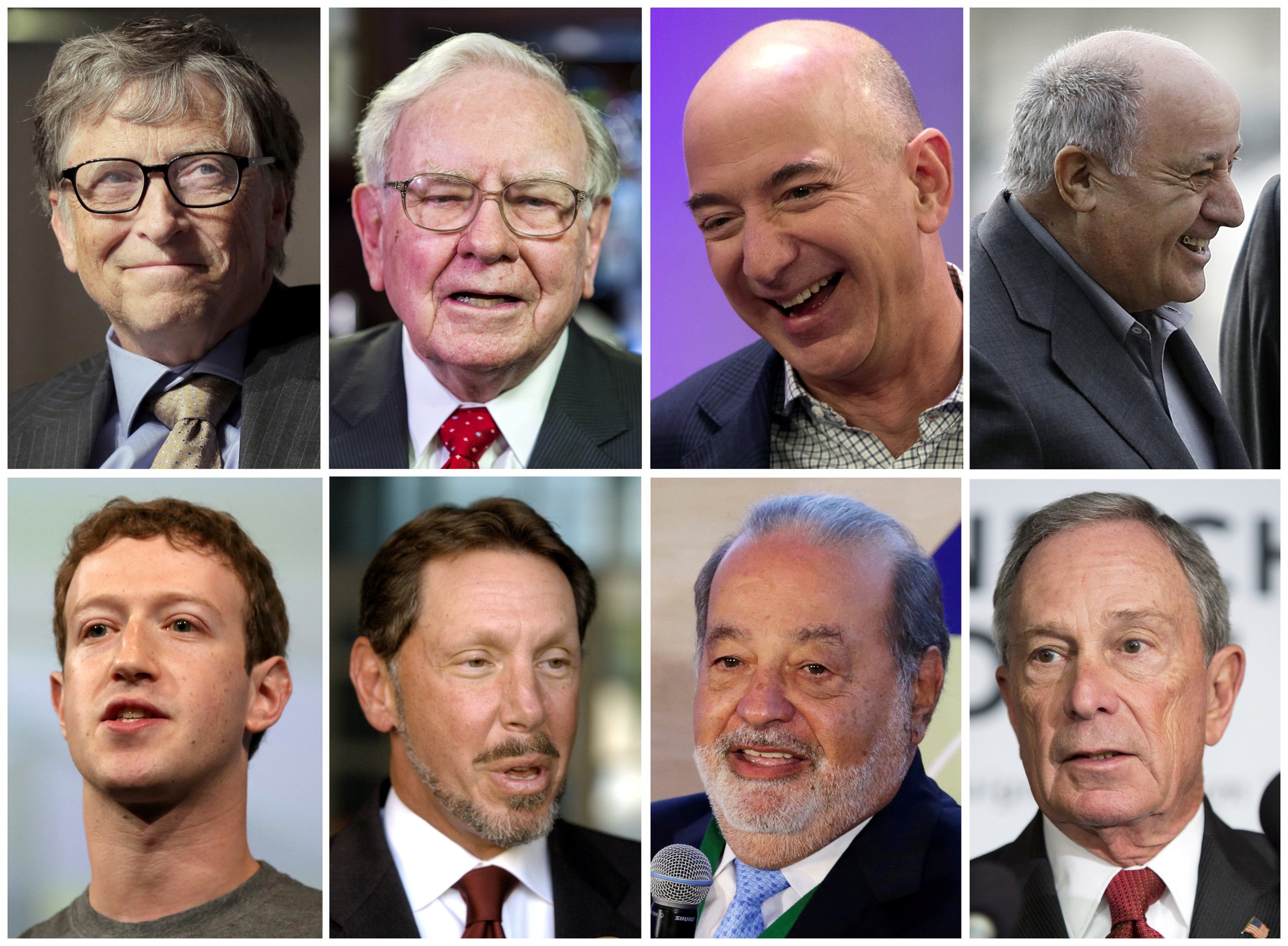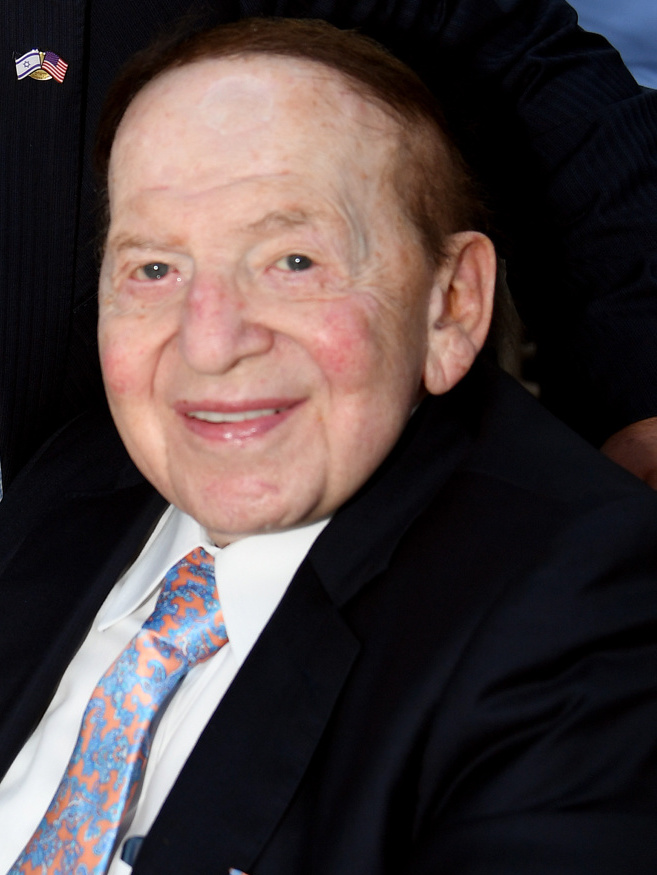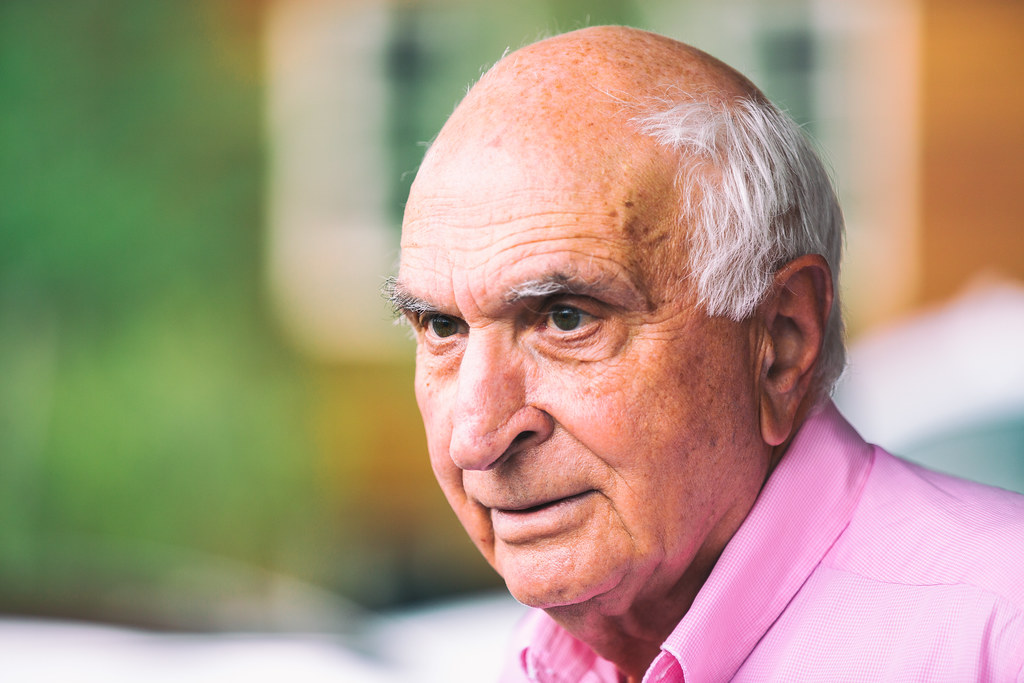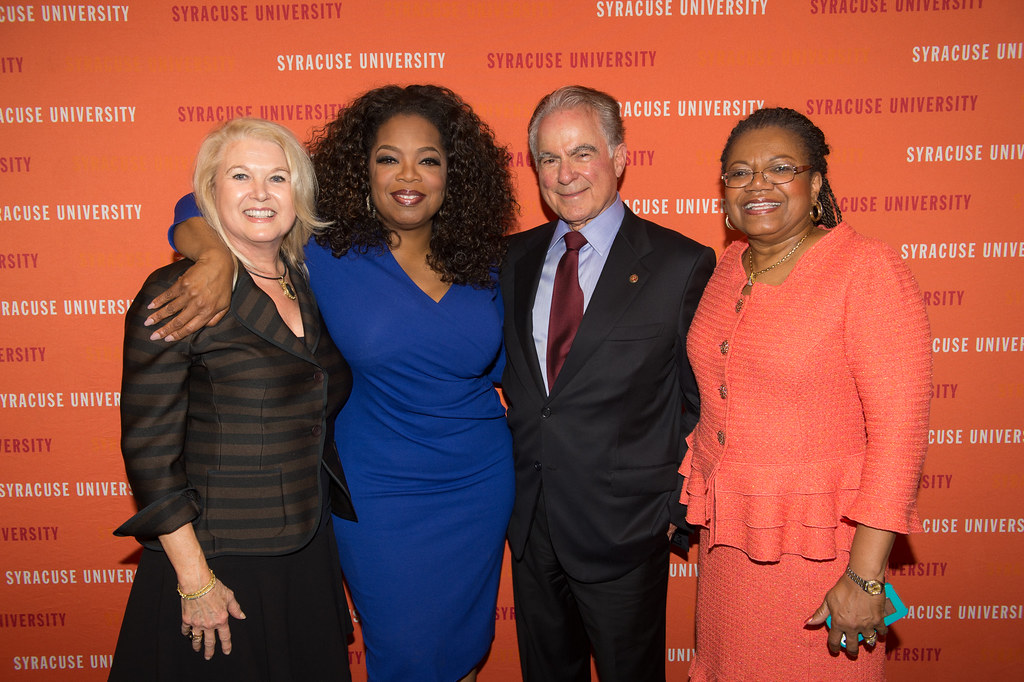
Billionaires, by their very definition, occupy an incredibly exclusive echelon of global wealth. With only about 2,208 such individuals worldwide, and America leading this extraordinary count, it’s often assumed that a significant portion of this elite club began their ascent with a distinct advantage – affluent family backgrounds and access to first-class education. Indeed, a running start on wealth can smooth the path to monumental financial success, yet this narrative tells only one part of the story.
What truly captivates and inspires, however, is the remarkable saga of the self-made billionaires, a tough and mighty breed who defy these expectations. These are the titans who commenced their journeys from the most challenging of circumstances, often experiencing genuine hardship, and yet found ingenious ways to propel themselves beyond even their wildest dreams. Their colossal achievements are not merely products of inherited privilege but are forged through sheer force of will, creative thinking, and an unwavering commitment to hard work.
The stories of how these individuals transformed adversity into billions are not just compelling; they are profoundly motivating. They serve as potent reminders that the human spirit, when fueled by resilience and determination, can overcome seemingly insurmountable odds. This article delves into the extraordinary lives of several such visionaries, illuminating how their difficult childhoods, rather than hindering them, became the very crucible in which their future successes were forged, proving that anything truly is possible with the right blend of ingenuity, effort, and perhaps, a touch of fortune.

1. Oprah Winfrey
The woman globally recognized as the “Queen of All Media” rose from profound poverty to become one of the most influential figures and a media mogul worth an estimated $3.1 billion. Oprah Winfrey’s earliest years were far from the glittering success she now embodies. Born on a small farm in Mississippi to a teenage single mother, she was initially raised by her grandmother, a period during which her family’s meager resources meant she could only be dressed in potato sacks. Her childhood was marked by intense hardship, lacking even basic amenities like running water or electricity, a reality she shared.
Her journey through adolescence was challenging and unstable, often with little supervision and, tragically, molestation by family members. It wasn’t until her teenage years, when her father took a crucial step in prioritizing her education, that her trajectory began to shift. This focus proved pivotal; she won a speaking contest that secured her a full scholarship to Tennessee State University, opening doors to opportunities previously unimaginable from her impoverished beginnings.
Winfrey’s inherent talent for communication became evident early on. She began working in local media as a teenager, eventually landing a job as an anchor on “A.M. Chicago.” Her authentic and engaging style captivated audiences, transforming the show into a smash hit. “The Oprah Winfrey Show” became her signature achievement, drawing 10 million viewers daily, cementing her status as the third woman in history to own and produce her own show and ultimately building an empire around her name. Her journey underscores how determination, despite humble beginnings, can lead to unparalleled influence.
Read more about: Beyond the Alarm Clock: Unveiling 10 Morning Habits of America’s Most Productive CEOs for Unrivaled Success

2. Howard Schultz
Howard Schultz, the visionary behind Starbucks’ global dominance and now worth an estimated $2.9 billion, did not begin life with inherent advantages. His foundational years were spent in a Brooklyn housing project, witnessing his father’s struggle with low-paying jobs. A pivotal moment occurred when Schultz was seven: his father broke his ankle on the job, revealing a devastating lack of health insurance and leaving the family without income, an event that instilled in Schultz a deep understanding of “hopelessness and despair.”
This early experience fueled Schultz’s entrepreneurial drive. To finance college, he worked multiple jobs and even sold his own blood, demonstrating fierce determination. His education, supported by student loans and sports scholarships, prepared him for a different path. In the early 1980s, Schultz encountered Starbucks, a small Seattle coffee shop, and immediately envisioned its potential for national expansion, focusing on quality and robust “employee benefits.”
Initially unable to persuade the company, Schultz later acquired the brand in 1987. Under his leadership, Starbucks rapidly became a global sensation, going public in 1992 and blossoming into a recognized brand with thousands of stores and billions in annual revenues by 2000. His journey, driven by the desire to “build the kind of company that my father never got a chance to work for,” powerfully illustrates how early adversity can forge transformative success and social responsibility.
Read more about: Seriously, What Were They Thinking?! These 14 Book-to-Movie Adaptations Are the Absolute Worst

3. Jan Koum
Jan Koum’s journey from welfare recipient and janitor to the founder of WhatsApp, acquired by Facebook for $19 billion, is a quintessential rags-to-riches narrative. Born in Ukraine, Koum faced considerable hardship from a young age. At 16, he and his mother immigrated to the U.S., where his mother babysat and Koum swept floors in a grocery store to make ends meet, with the family relying on food stamps and welfare.
Despite these financial struggles, Koum possessed an insatiable hunger for knowledge in computer networking. Lacking formal resources, he taught himself by diligently reading old manuals, eventually securing a job at Yahoo. There, he met Brian Acton, his future WhatsApp co-founder. The spark for WhatsApp ignited after Koum purchased an iPhone and observed the immense potential of the app industry, fueled by his experience with unreliable phone service in Ukraine.
His vision was to create a reliable, globally popular messaging app free from intrusive advertisements. WhatsApp’s popularity exploded, leading to the monumental $19 billion Facebook acquisition in 2014. In a powerful symbolic act, Koum signed the deal in front of the building where he had once collected food stamps. With a net worth estimated at $9.1 billion, Koum’s story demonstrates how innovation and hard work can lead from humble beginnings to the pinnacle of technological and financial success.

4. John Paul DeJoria
John Paul DeJoria, co-founder of the highly successful John Paul Mitchell Systems and Patrón Spirits Company, vividly illustrates how a man homeless multiple times could build a multi-billion-dollar empire. His earliest years were unstable; he lived in a foster home and, as a teenager, joined a street gang. His struggles deepened when his then-wife abandoned him and their toddler son, taking all their money, leaving him homeless yet again, selling encyclopedias door-to-door to survive.
DeJoria developed into an adept salesperson despite these setbacks, working for several hair-care companies. However, his independent spirit often led to him being fired for not fitting in. With fierce determination, he partnered with hairdresser Paul Mitchell, pooling a mere $700—the seed capital for John Paul Mitchell Systems. Their goal was audacious: sell luxury hair products at affordable prices. The nascent business wrestled with challenges for two arduous years, pushing them to the brink, with DeJoria and his mother once sharing just 27 cents.
The brand eventually found its footing, pioneering ethical practices as “the first beauty company to take a stand against animal testing.” DeJoria’s entrepreneurial spirit didn’t stop there; he co-founded Patrón Spirits Company, selling his stake for $5.1 billion, and invested in the House of Blues. With a net worth of $3.3 billion (Forbes 2018), DeJoria’s story powerfully demonstrates that extreme adversity, combined with relentless perseverance and a commitment to giving back, can become the foundation for extraordinary success.

5. Larry Ellison
Larry Ellison, the enigmatic founder of Oracle Corporation, whose multinational database software corporation generates over $37 billion in annual revenues and whose personal net worth is estimated at $56.5 billion (Forbes 2018), did not embark on his life’s journey with inherent advantages. Born to a single mother, Ellison was adopted by his mother’s aunt and uncle after contracting pneumonia as a baby. He grew up in a lower-middle-class community on the South Side of Chicago, describing his childhood home as a “cramped walk-up apartment.”
Ellison displayed early academic promise but his college path was disrupted after his adoptive mother passed away, leading him to drop out twice. With “little money to his name,” he moved to Berkeley, California, spending a decade working odd jobs as a computer programmer, eventually contributing to the first IBM-compatible mainframe system at Amdahl. This hands-on experience became foundational.
His pivotal moment arrived when he and two colleagues founded Software Development Labs, securing a contract to build a database management system for the CIA, which they named “Oracle.” A transformative deal with IBM, which utilized Oracle’s system, triggered dramatic growth, with the company doubling sales every year for seven years. Ellison renamed the company after its best-selling product, and by 1992, Oracle was the leader in database management. His journey from a college dropout to a technology titan underscores the possibilities available through ingenuity and perseverance.
Read more about: Decoding the Billions: A Mental Floss Guide to the World’s Richest in 2025

6.J. K. Rowling
J. K. Rowling, the literary visionary behind the global phenomenon that is the Harry Potter series, transformed from a struggling single mother on welfare to the world’s first billionaire author. Her path was anything but straightforward, marked by profound personal losses and significant financial hardship. The genesis of her magical world occurred on a delayed train, spanning seven arduous years until the first book was completed.
During this challenging period, Rowling endured a series of devastating blows: her mother died, she gave birth to her first child, and her first marriage ended in divorce. Relocating to Edinburgh, Scotland, she found herself jobless and with no money, living as a single mother on welfare. She vividly recalled these lean times, stating, “I remember 20 years ago not eating so my daughter would eat. I remember nights when there was literally no money.” These experiences, however, fueled her determination to create.
Her perseverance through these financially precarious years paid off spectacularly. The Harry Potter book series sold over 450 million copies and spawned a massively successful movie franchise, theme parks, and television adaptations. From the brand she created, Rowling is estimated to have made about $1.2 billion. Her immense wealth has not detached her from her past struggles, as she has become a renowned philanthropist, giving away over $160 million, a generosity that contributed to her temporary fall from billionaire status. Her journey exemplifies the extraordinary power of imagination and resilience.
Read more about: Remember the ’00s? These 11 Unforgettable Influences Were the Decade’s True Princes!

7. Ralph Lauren
Ralph Lauren, the iconic fashion designer renowned for his polo shirts and high-end ties, who built a brand with a market value of nearly $8 billion and amassed a personal fortune of $5.9 billion, began his journey from decidedly modest origins. Born the son of Jewish immigrants, Lauren grew up in the Bronx, sharing a bedroom with his brothers. His childhood was characterized by a distinct lack of material wealth, yet an innate fascination with clothing blossomed early on. “As a kid, I was always into clothes, but I didn’t have the money to buy them,” he revealed in a 2002 interview.
This early deprivation, far from stifling his passion, ignited a powerful internal drive. Receiving hand-me-downs from his brothers sparked a desire for self-expression: “there was an energy in me that made me say, ‘I want to get my own things, to make my own statement.'” This intrinsic motivation, coupled with his exposure to a more glamorous world through movies, began to coalesce into a singular vision. He wasn’t just interested in clothes; he was captivated by the idea of creating a lifestyle, an aspirational “American Dream.”
Lauren’s entrepreneurial spirit emerged early, as he started by selling ties to his classmates. This grassroots endeavor laid the foundation for his professional career. He later took a pivotal step, convincing a clothing manufacturer to allow him to launch his own tie line. From a modest desk drawer in the Empire State Building, he began to build what would become the Ralph Lauren fashion empire, crafting not just garments but an entire world of aspiration and style. His journey from a working-class background to becoming one of the richest fashion icons is a compelling narrative of how deep-seated passion, unyielding determination, and keen branding insight transformed humble beginnings into a global symbol of style.
Continuing our exploration of self-made titans, we delve into the lives of seven more extraordinary individuals whose difficult childhoods, rather than becoming hindrances, served as crucibles for their immense success. These stories further demonstrate that the bedrock of immense wealth is often found not in privilege, but in an unyielding spirit forged in the fires of adversity. Each journey is a testament to the power of perseverance, innovative thinking, and an unwavering commitment to a vision, proving that the human spirit can truly overcome seemingly insurmountable odds to build global empires.
Read more about: 14 Celebrity Cars That Are So Extravagant, They Scream “Too Much Money!”

8. Sheldon Adelson
Sheldon Adelson, the visionary chairman and CEO of Las Vegas Sands, ascended to a net worth of $35.2 billion through sheer grit and a sharp business mind, having started life far from the opulence he would eventually create. Born to Eastern European Jewish immigrants, Adelson’s earliest years were spent in the tough, working-class neighborhoods of Boston, where he shared a cramped one-room tenement with his parents and three siblings. His parents, who died with less than $100 in the bank, instilled in him a profound understanding of scarcity and the importance of hard work.
Adelson openly attributed his rough upbringing to shaping him into a shrewd businessman, stating in a 2010 “Nightline” interview, “I’m talking [as] somebody who wore his skin down on his fingers trying to climb the ladder of success.” This early exposure to hardship, rather than debilitating him, cultivated an aggressive entrepreneurial spirit and an unyielding resolve to succeed against all odds. His journey epitomizes the self-made narrative, where inherited privilege was conspicuously absent.
Despite his vast personal fortune, Adelson remained deeply connected to his heritage and committed to philanthropy. To honor his roots and the struggles of his family, he generously donated more than $50 million to Jewish schools across the Las Vegas and Boston areas. Additionally, he contributed another $50 million to the Yad Vashem World Holocaust Remembrance Center, demonstrating that his financial success was intrinsically linked to a profound sense of responsibility and a desire to uplift others.
Read more about: Beyond the Billions: What Your Zodiac Sign Has in Common with the World’s Richest People
9. Harold Hamm
Harold Hamm, the driving force behind Continental Resources, now boasts an estimated net worth of $18.5 billion, a stark contrast to his childhood as the youngest of thirteen children born to Oklahoma sharecroppers. His early life was defined by manual labor and financial struggle, a period vividly recalled through memories of picking cotton barefoot. By the age of 16, Hamm was already shouldering significant responsibility, taking a job at a gas station to help support his large family, a clear indicator of the inherent resilience and work ethic that would define his future career.
This challenging upbringing, far from crushing his spirit, ignited within him a powerful desire to achieve more. Hamm, who would later become the founder, chairman, and CEO of a major oil and gas production company, revealed that he drew significant inspiration from unexpected sources. He recalled a local potter speaking to him and his classmates at a school assembly, emphasizing the importance of passion in one’s life. “It was clear that he did well because that was his passion, his art, and the message was that all of us could do well if we followed our passion in life,” Hamm reflected.
This early lesson about passion as a driver of success resonated deeply with Hamm, guiding his entrepreneurial path in the demanding energy sector. His journey from a sharecropper’s son picking cotton to a commanding figure in the oil industry is a powerful testament to how early adversity, coupled with an unwavering internal compass and relentless hard work, can lay the foundation for monumental wealth and influence.
Read more about: 15 Expert Secrets to Drive Ticket-Free: Decoding Police Signals You Never Saw Coming

10. Kenneth Langone
Kenneth Langone, the self-made billionaire businessman and investor renowned for his instrumental role in creating Home Depot, began his life with incredibly humble origins. While he described his childhood as a “charmed life,” this charm did not stem from material wealth. His mother worked tirelessly as a cafeteria worker, and the family’s financial situation meant that material possessions were scarce. Instead, Langone’s “charmed life” was rooted in the unconditional love he received, a powerful emotional foundation that would later enable him to overcome significant setbacks without letting failures diminish his self-worth.
Langone’s career path was marked by a willingness to embrace risk, an essential trait for anyone aspiring to his level of success. He articulated his philosophy on failure, emphasizing that “when you’re in the risk-taking business at the level that I am, not everything you’re going to do is going to work.” He pragmatically noted that the true loss doesn’t come from the failure itself, but from the self-abuse and erosion of confidence that can follow. His ability to rebound from professional disappointments was directly linked to the emotional resilience built during his formative years.
Today, with a net worth of $3 billion (according to Forbes in 2013), Langone stands as a towering figure in the business world. He is unapologetically proud of his accomplishments, famously declaring in a Bloomberg interview, “I worked like hell to become part of the one percent.” His story powerfully illustrates that while a supportive family environment can provide a different kind of wealth, it is ultimately tireless effort, shrewd business acumen, and a resilient mindset that transforms humble beginnings into an extraordinary legacy.

11. Alan Gerry
Alan Gerry, now a billionaire with a net worth of $1.4 billion, forged his empire from the modest circumstances of growing up in Liberty, New York, during the Great Depression. His father, a frozen food distributor, often struggled significantly to provide for the family, instilling in Gerry an early understanding of financial hardship and the imperative for self-reliance. This upbringing, marked by scarcity, laid the groundwork for his future entrepreneurial drive and commitment to his community.
Choosing a path of service over formal education, Gerry dropped out of high school to serve in the Marines during World War II, a decision that would profoundly shape his capabilities and perspective. Upon his return, he shrewdly leveraged his GI Bill benefits to train in television repair, a practical skill that provided a tangible entry point into the burgeoning world of electronics. This technical expertise became the cornerstone of his future ventures.
In 1956, Gerry took a pivotal leap, investing a modest $1,500 to establish a cable company right in his hometown. What began as a local service gradually expanded over decades, evolving into an expansive network of 64 cable systems spread across 18 states. His strategic vision culminated in 1996 when he sold the company to Time Warner for a reported $2.7 billion, securing an impressive $900 million in personal profit. Gerry subsequently channeled his wealth into establishing the venture capital fund Granite Associates and remained a dedicated philanthropist, notably building the Bethel Woods Center for the Arts in the community he held dear. As he articulated, “You grow up in a country and see that now so much has evaporated around you, so, you try to keep your eyes open and see what needs help.”
Read more about: I Miss These: 14 Frozen Dinners That Vanished From Supermarket Freezers, And Why We’re Still Thinking About Them!

13. Rihanna
Robyn Rihanna Fenty, globally recognized simply as Rihanna, has seamlessly transitioned from a chart-topping musician into a billionaire entrepreneur, a remarkable feat made even more extraordinary by her difficult childhood in Barbados. Her early years were shadowed by significant personal challenges, including her father’s struggles with addiction and her own debilitating migraines, which she experienced as a young girl. These adversities created a tumultuous environment that demanded early resilience and a strong internal fortitude.
Despite the instability and hardship of her upbringing, Rihanna’s innate musical talent and undeniable star power began to emerge. Her raw talent, combined with a fierce drive, propelled her from the modest streets of Barbados to international stardom, capturing the hearts of millions around the globe. This meteoric rise in the music industry was just the first chapter in her entrepreneurial narrative, demonstrating her ability to overcome immense personal hurdles and achieve global recognition.
Her visionary spirit extended far beyond music, leading her to identify significant gaps in the beauty industry. With a keen eye for business and an understanding of diverse consumer needs, she launched Fenty Beauty, a cosmetics line celebrated for its groundbreaking inclusivity. This venture quickly achieved phenomenal success, solidifying her status as a billionaire and proving that her entrepreneurial spirit is as powerful and transformative as her musical artistry. Rihanna’s journey underscores how profound personal challenges can fuel an extraordinary determination to innovate, build, and leave an indelible mark on the world.
Read more about: The 2010s Rewind: 14 Iconic Women Who Defined a Decade of Fashion on Magazine Covers
The remarkable narratives of these self-made billionaires offer far more than just chronicles of immense wealth; they are powerful affirmations of the human capacity to triumph over adversity. Each story, from the barren farms of sharecroppers to the confines of tenement housing, from struggles with addiction to battles with homelessness, paints a vivid picture of individuals who refused to be defined by their circumstances. Their paths to success were paved with relentless effort, creative problem-solving, and a steadfast belief in their own potential, serving as enduring inspiration for anyone daring to dream beyond their present reality.



